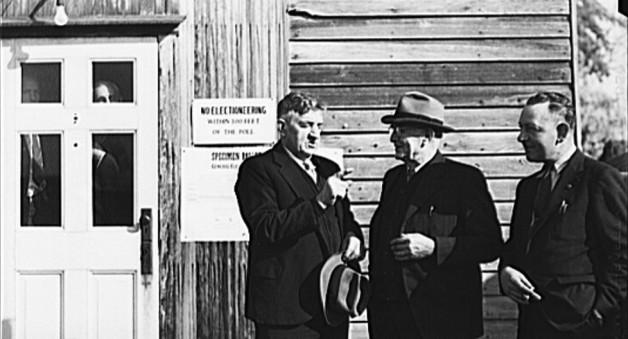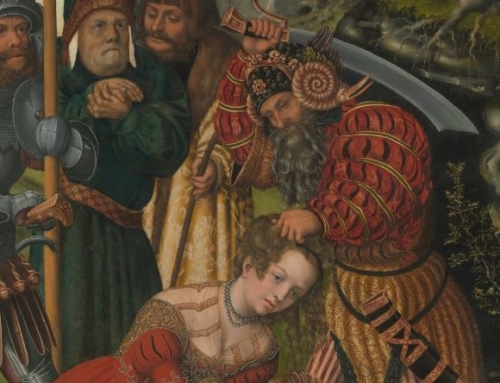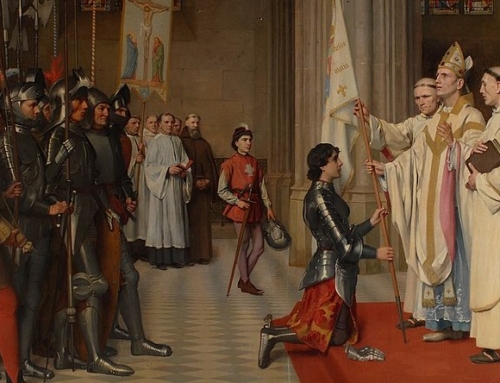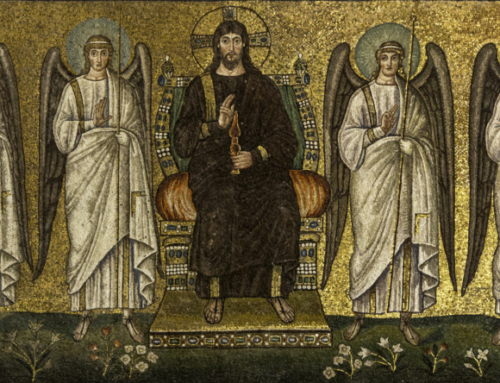There is nothing quite like election night. The thrill of victory, the agony of defeat—for the follower of politics, it’s both a solemn fulfillment of civic duty and something like the Super Bowl. This past Tuesday night, a tight race broke decisively for President Obama, as the Democratic campaign nearly swept the battleground states and won all the close Senate races. As the dust settles, Catholics of every stripe are coming to terms with the political realignment augured by the President’s victory. It is essential that we view these developments with the eyes of faith, and avoid overreactions or hysterics in either direction. Let’s consider some of the most prominent post-election responses, and how we might move forward.
“This is the end of the world.” Every political campaign of modern history has exaggerated the consequences of its success or failure. Considering the investment of time, money, effort, and emotion on the part of so many, it’s to be expected that election outcomes elicit either euphoria or despair. Yet this is precisely why we must place the election in its proper context, and resist the modern trend of freighting political campaigns with quasi-religious meaning.
On the one hand, it serves no one to pretend that what has happened is not important. Elections have consequences. Our leaders make countless decisions that affect us all and leave a lasting mark on our society. On the other hand, an election is really just a snapshot in time, a passing indicator of where we are as a country. Political trends will come and go, majorities will form and dissipate, and the cycles of political history will continue to turn. We must resist the urge to “immanentize the eschaton,” in Eric Voegelin’s memorable phrase—that is, to attach apocalyptic significance (either positive or negative) to ordinary human affairs.
“Prepare for martyrdom next year.” This theme has taken on greater prominence in recent years, and reflects a growing sense of unease among many Catholics. They see social trends on issues like abortion, contraception, marriage, and religious freedom leading in dangerous directions. Since the Church is undoubtedly the strongest voice in the public square on these matters, she is the special target of many who resent being told that the new public morality is anything but moral, and will not lead to authentic happiness.
It may well be true that God is calling the Church in the United States to bear public witness to the faith by suffering in ways great and small for what she professes. But it does no honor to the blood of martyrs past, nor is respectful to those who are dying in our own time for the faith, to exaggerate our situation. Moreover, it’s simply counterproductive to adopt a tone of besieged, fearful insularity. We must be joyful heralds of the Gospel in the face of every adversity. Secularists will be only too pleased if we abandon the public square by embracing an over-the-top rhetoric of imminent martyrdom, thereby reinforcing our image as out-of-touch extremists.
“If only there had been more discussion of social issues, or a more socially conservative candidate.” On issues of life and marriage, election campaigns rarely win hearts and minds. Rather, hearts and minds win election campaigns. We must face the fact that voters have rejected conjugal marriage for the first time in several states, and that candidates who embrace extreme positions on abortion and contraception clinched many tight races. Defending the family and innocent life involves promoting a vision of genuine human happiness and fulfillment, not simply repeating the same arguments more loudly. The pro-life, pro-family cause will fade to irrelevance if it adopts a purely political strategy. This is a mission for the new evangelization, and it is one in which we are all called to have a role.
“2016 starts today.” Please, just stop. Even the most inveterate students of politics are exhausted by the roller-coaster ride that is the campaign season. Living for the next election as if it will be the answer to all we desire is simply self-deception. We must not make a false god out of our political process.
“We should just give up on politics.” On the contrary, as Aristotle famously said, “Man is by nature a political animal.” We cannot escape politics, because politics is simply the organization of our shared life as a country, as states, as communities. It is the necessary implication of our belief that no man is an island unto himself, and that we are all truly dependent on one another. It is the means by which we protect the most vulnerable, defend what is right, and carry on the tradition of self-government handed down to us by our fathers. Most importantly, however, concern for politics is part of our vocation as Christians. Politics must never be a substitute for faith, but our faith compels us to bring the light of the Gospel into the public square. We must never cease to preach Jesus Christ as the answer to every human desire. He is the ultimate source of true peace and order, at home and abroad.
✠
Image: Marjory Collins, Outside the Polls on Election Day (Olney, Maryland; November, 1942)







